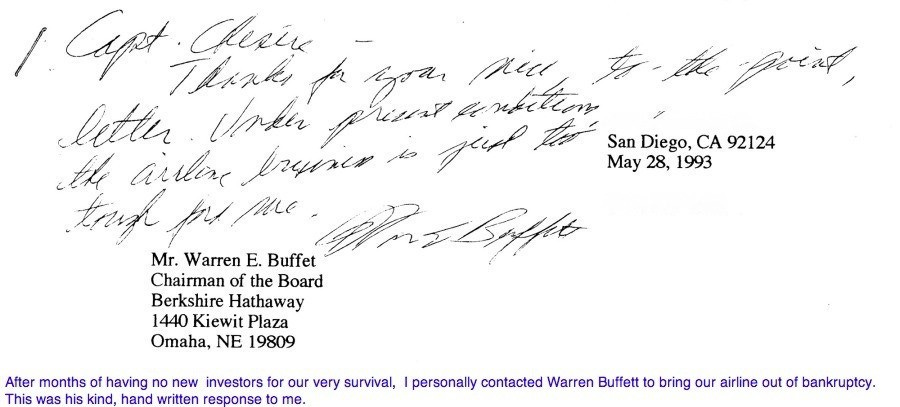How to Become a Master Negotiator Using These 7 Practical Negotiation Techniques
How to Become a Master Negotiator Using These 7 Practical Negotiation TechniquesThis is the most practical guide to everyday negotiation.To get what you want out of life, you need to master the skill of negotiation. Former FBI hostage negotiator Chris Voss says, “Whether we notice it or not, we spend our days negotiating for something — for our spouse to do more housework, a child to eat just three more bites or go to bed on time, an extended deadline on a project, a salary increase, a better rate on a vacation package.” In other words, honing your negotiation skills can save you a lot of time, energy, and nerves. As author Chester L. Karrass once said, “In business as in life, you don’t get what you deserve, you get what you negotiate.” For the last month, I’ve been reading as much as I can on the topic of negotiation as I try to extract the most fundamental techniques that are applicable to any situation. I use movie scenes to help illustrate the points visually because, as you can imagine, most negotiations are done behind closed doors and haven’t been captured on video. Below, you will find a practical guide to everyday negotiation: 1. Discover the other person’s needTo succeed in negotiating, you need to discover the other person’s need. Not their want. Not their desire. But their need. What do they believe they cannot live without? In the film ‘Up In the Air,’ George Clooney plays a corporate downsizer named Ryan Bingham. Ryan is essentially a man who goes into companies and fires people for a living. In one scene, Ryan is in the process of firing an employee named Bob, who shows him a picture of his kids and says, “What do you suggest I tell them?” After listening to Bob’s grievances, Ryan asks, “Your children’s admiration is important to you?” This question allows Ryan to gauge just how emotionally attached Bob is to the idea that his kids look up to him. He has discovered Bob’s need. Ryan then surprises Bob with a statement: “I doubt they ever admired you, Bob.” Visibly shaken, Bob says, “Aren’t you supposed to be consoling me, asshole?” From there, Ryan begins appealing to Bob’s emotions (more on this in a later technique). He had noticed in Bob’s resume that he minored in “French culinary arts” in college. So he asks him, “How much did they first pay you to give up on your dreams? And when were you going to stop and come back and do what makes you happy?” You see how Bob’s facial expressions soften from a face of anger to a face of sadness. Ryan goes on: “I see guys who work at the same company for their entire lives — guys exactly like you. They clock in, they clock out, and they never have a moment of happiness. You have an opportunity here, Bob. This is a rebirth. If not for you, do it for your children.” By using words like “dreams” and “happiness” and “rebirth,” Ryan gets to the core of Bob’s fundamental needs — to be a happy, fulfilled man who follows his passions and gains the admiration of his kids.  Remember, a need always overpowers a want. 2. Get to ‘no’ fastIn a negotiation, getting a “no” doesn’t signify failure. In fact, a “no” often kicks off the negotiation process. In certain situations, people feel safe and protected by saying “no.” It feels final and definitive. But once they lay out the problems, the other side can focus on fixing them and creating a tailor-made solution to give their counterpart the illusion of control. In this scene from the movie Air, we see the power of getting to “no” fast. In it, Michael Jordan’s mom, Deloris, is discussing the terms of his potential partnership with Nike. She starts off the conversation by making a statement: “Michael will get a percentage of the revenue of the sale of each shoe that is sold. Not all Nike shoes. Just the ones with his name on them.” To which, the Nike executive says, “Oh, Mrs. Jordan, that’s not how the business works at all.” From there, Deloris lays out the incentive structure of the deal and refuses to take ‘no’ for a final answer because she knows Nike needs Michael Jordan more than he needs them. They both knew that Jordan had the option to sign with Adidas instead. She ends the call with, “I’m going to put it to you once again: Michael will get $250,000 and a Mercedes-Benz that will be forgotten in a year, but he wants a piece of the revenue of the shoe and all future Air Jordan shoes. A shoe is just a shoe until my son steps into it.”  Once you get to “no,” listen to your counterpart’s concerns and figure out how you can get them on the path to a “yes.” 3. Practice ‘mirroring’ and ‘labeling’As the FBI’s lead international kidnapping negotiator, Chris Voss spent 24 years of his career mastering the art of listening. In fact, people’s lives depended on it. In 1993, two men held three employees hostage at a Chase Manhattan Bank in Brooklyn, New York. Voss was the second negotiator on the phone. As he begins talking to one of the bank robbers, he identifies himself and immediately begins employing several strategies during the conversation. Two of those strategies include “mirroring” and “labeling,” which are essential in any negotiation. “Mirroring” is a rapport-building technique that is commonly used to put the other person at ease and gather intel. You “mirror” someone by repeating several key words they used in their last communication. Watch as Voss begins “mirroring” the hostage-taker by repeating his statements as questions. When the bank robber says, “You guys chased my driver away,” Voss responds with, “We chased your driver away?” (Source: Chris Voss Masterclass) Mirroring is an effective technique because it keeps you emotionally sober while allowing the other person to continue talking. Then, he begins “labeling.” “Labeling” is used to verbally identify and name your counterpart’s emotions. A good label would be responding with one of the following: “It seems like... It looks like... You seem to be...” (e.g., “It seems like you’re in a stressful situation.”) He tells the second bank robber, “It wasn’t your fault, was it?” and “You regret this happened, don’t you?” Both of these questions insinuate he got roped into a bad situation. (Source: Chris Voss Masterclass) Using both mirroring and labeling in the same conversation defuses negative feelings, ensures the other person feels heard, and allows you to better understand the context of the other person’s feelings. If you like this learning guide, you may enjoy this one on charisma, too: 4. Lead your counterpart to your desired destinationHow can you lead someone to see what you see? To come to the same conclusion as you? Voss believes that all questions have an emotional impact based on how they’re constructed. A question that starts with the word “why” can put the other party on the defensive almost instantaneously. Instead, Voss recommends starting with the less threatening, “What?” and “How?” questions. They help someone shape their thoughts more effectively. “This method actually helps your counterpart think, makes the issues more three-dimensional, and gets you better answers,” he says. Calibrated questions are a great way to stay in control while making your counterpart think that they are the ones arriving at the conclusion themselves when it was really you guiding them there. In the film, The Founder, the character of Harry Sonneborn (who went on to become McDonald’s CFO) pitches McDonald’s CEO Ray Kroc on why he’s actually in the real estate business, not the burger business. Take a look at this clip in which Sonneborn asks Kroc a series of questions that lead Kroc to see the solution that Sonnenborn has already seen.  Sometimes, it’s even more subtle than asking questions. You can guide the conversation and put ideas in your counterpart’s head by offering problems and asking the other person to help you brainstorm a solution. In a hilarious scene from My Big Fat Greek Wedding, check out how Maria communicates in an indirect way to make her husband Gus think her plan was his own plan.  A great deal of negotiation hinges on influence and persuasion. 5. Appeal to your counterpart’s emotionsRationality seems like a superpower that can’t fail. Except when it does. I recently dealt with someone who was solely operating on feelings backed with no evidence while I was trying to convince them to calmly look at the facts. When I told my husband about it, he said, "Your mistake is that you're trying to be rational in an irrational situation." That's the thing — You can't always meet raw emotion with common sense. Worth is a movie based on the life of Kenneth Feinberg, the mediator in nearly all of America's crises. In one scene, Feinberg meets with Sept. 11 victims in order to decide who receives compensation — and how much — for their suffering. The meeting goes downhill as soon as he presents a formula that would determine the monetary value of their loved ones' lives. One man stands up and asks, "Why do we need a formula? Why isn't it equal payment for everybody? My daughter's life was worth just as much as anybody in a corner office." A woman follows up: "My boy was a firefighter. Was he worth less than the guy pushing pencils and trading stock?" Feinberg is confused by the criticism because he understands how the system works and that lawsuits against the airlines, for example, would never turn out in favor of the individual. To him, the logical thing to do would be to take advantage of the victim compensation fund money. This is the exchange between Feinberg and his law partner Camille:
Needless to say, he quickly figures out that the objective approach is the wrong strategy. Here's the thing: Most people are emotional beings. They don't want you to tell them about a formula, they want you to hear their story. Even though it may seem irrational, Feinberg realized that in emotionally-laden situations, his role is to listen to the families recount their grief and love for the ones they’ve lost. He ended up meeting with 950 victims in person, with eight to 10 meetings per day.  The most effective and successful people understand that sometimes you need to meet emotion with emotion, no matter how irrational it may seem. They've figured out that emotions make the world go round. Relationships, markets, businesses, and dining experiences are all influenced by these mushy things we call "feelings." By listening, asking questions, and understanding your counterpart's point of view, you can better understand when to meet someone with emotion rather than reason. It's never just about the money. Sometimes, the only way to get someone to dip a toe in the crystal pool of rational thought is to wade through the messy swamp of emotions first. 6. Maintain emotional control using the ‘Late Night FM DJ voice’Now, let’s talk about your emotions. A good negotiation hinges on emotional intelligence. Prior to the FBI, Chris Voss worked as a call operator on a suicide hotline in order to better learn how to talk with people in distress. “If you talk out loud in a smooth, calming voice, you can actually calm yourself down,” he says. Voss believes the most important tool in a negotiation is mastering your tone of voice. He calls it ‘The Late Night FM DJ voice,’ which is a declarative, soothing, and downward-inflecting voice that is applicable in nearly every situation. The reason it’s effective is because it hits the mirror neurons in your counterpart’s brain and triggers a neurochemical reaction that calms them down. In turn, it creates an involuntary response of clearheadedness in both parties. Now, let’s take a look if you’re on the receiving end of the negotiation, and you want to say ‘no’ without upsetting the other person. In The Godfather, the fictional character Vito Corleone is a magnificent example of someone who knows how to maintain his emotional control in the thick of a negotiation. In this clip, you’ll see how Corleone reacts when he’s presented with an offer to enter the business of narcotics, which Corleone believes is too risky and dangerous. Corleone starts by asking calibrated questions like, “What’s in it for my family?” and “Why do I deserve this generosity?” He then calmly states, “I must say no to you, and I will give you my reason.” He offers his reason about why he’s not interested in getting into the drug business, tells him his ‘no’ is final, congratulates him on his new venture, shakes his hand, and escorts him out politely without ever losing his cool.  Note how he maintained emotional control even though we see that he was livid at his son for expressing interest in the opportunity during the negotiation. He scolds him and says, “Never tell anyone outside the family what you’re thinking again.” Warren Buffett, the legendary investor who is known for his analytical mind, also knows not to get wrapped up in emotions. Similar to how Corleone is portrayed, Buffett knows how to keep his emotions cool with a ‘Late-Night FM DJ Voice’ that comes through even in his writing. In 1993, commercial pilot John Chesire sent Buffett a seven-page letter asking for an investment in his employer, an airline company. Buffett sent him the following handwritten response: "Thanks for your nice, to-the-point letter. Under present conditions, the airline business is just too tough for me." A negotiation doesn’t have to be a confrontation. It can be a simple, calm ‘no’ that doesn’t flare up unnecessary emotions in either party. 7. Let your counterpart give you the answers to the testI learned this lesson from my husband, Anthony. He once gave me a piece of advice about negotiation I’ve never forgotten. He said, “Just listen, and let them give you the answers to the test.” So what does that mean? Many of us go into a negotiation and start negotiating against ourselves and talking incessantly rather than listening intently. Let’s say you’re talking with someone about striking a deal together. Before you ever agree to anything, you might want to ask questions like, “What would ‘success’ look like for you if we did this deal together,” “What are you ultimately optimizing for,” “What’s most important for you in this process,” and “What are some non-starters/dealbreakers/things you want to avoid if we work together?” As you listen, you jot down the answers, and now you’re better equipped to tailor your pitch in a way to best help them reach their goals. In this video, real estate entrepreneur Ryan Serhant suggests that you ask questions like, “What would you do if you were in my position?” or “How would you tell my client that your client won’t come up?”  Ultimately, it’s all about mastering the skill of collaboration. The world’s best negotiators know that you need collaboration — not competition — in order to get to a mutually-beneficial outcome. As master negotiator Nelson Mandela once said, “If you want to make peace with your enemy, you have to work with your enemy. Then, he becomes your partner.” … For more like this, make sure to sign up for The Profile here:Check out more of The Profile’s learning guides here:You're currently a free subscriber to The Profile. For the full experience, upgrade your subscription. |
Older messages
The Profile: The king of luxury & 2024’s most influential billionaire
Sunday, June 30, 2024
This edition of The Profile features Bernard Arnault, Jeff Yass, Noah Lyles, and more. ͏ ͏ ͏ ͏ ͏ ͏ ͏ ͏ ͏ ͏ ͏ ͏ ͏ ͏ ͏ ͏ ͏ ͏ ͏ ͏ ͏ ͏ ͏ ͏ ͏ ͏ ͏ ͏ ͏ ͏ ͏ ͏ ͏ ͏ ͏ ͏ ͏ ͏ ͏ ͏ ͏ ͏ ͏ ͏ ͏ ͏ ͏ ͏ ͏ ͏ ͏ ͏ ͏ ͏ ͏ ͏ ͏
The Profile: America’s homeless veterans & the ‘microschools’ surging in popularity
Sunday, June 23, 2024
This edition of The Profile features Bernard Arnault, Sabrina Carpenter, Lindsey Vonn, and more. ͏ ͏ ͏ ͏ ͏ ͏ ͏ ͏ ͏ ͏ ͏ ͏ ͏ ͏ ͏ ͏ ͏ ͏ ͏ ͏ ͏ ͏ ͏ ͏ ͏ ͏ ͏ ͏ ͏ ͏ ͏ ͏ ͏ ͏ ͏ ͏ ͏ ͏ ͏ ͏ ͏ ͏ ͏ ͏ ͏ ͏ ͏ ͏ ͏ ͏ ͏ ͏
The honest truth about how I feel one year after publishing a book
Thursday, June 20, 2024
Reflecting on the one-year anniversary of publishing my book, HIDDEN GENIUS. ͏ ͏ ͏ ͏ ͏ ͏ ͏ ͏ ͏ ͏ ͏ ͏ ͏ ͏ ͏ ͏ ͏ ͏ ͏ ͏ ͏ ͏ ͏ ͏ ͏ ͏ ͏ ͏ ͏ ͏ ͏ ͏ ͏ ͏ ͏ ͏ ͏ ͏ ͏ ͏ ͏ ͏ ͏ ͏ ͏ ͏ ͏ ͏ ͏ ͏ ͏ ͏ ͏ ͏ ͏ ͏ ͏ ͏ ͏ ͏ ͏ ͏
The Profile: Venture capital’s First Lady & the super-ager who died at 110
Sunday, June 16, 2024
This edition of The Profile features Annie Lamont, Nikki Glaser, Katie Ledecky, and more. ͏ ͏ ͏ ͏ ͏ ͏ ͏ ͏ ͏ ͏ ͏ ͏ ͏ ͏ ͏ ͏ ͏ ͏ ͏ ͏ ͏ ͏ ͏ ͏ ͏ ͏ ͏ ͏ ͏ ͏ ͏ ͏ ͏ ͏ ͏ ͏ ͏ ͏ ͏ ͏ ͏ ͏ ͏ ͏ ͏ ͏ ͏ ͏ ͏ ͏ ͏ ͏ ͏ ͏ ͏ ͏
Why All Love Stories Are Destined to End in Tragedy
Thursday, June 13, 2024
The greater the love, the greater the tragedy. ͏ ͏ ͏ ͏ ͏ ͏ ͏ ͏ ͏ ͏ ͏ ͏ ͏ ͏ ͏ ͏ ͏ ͏ ͏ ͏ ͏ ͏ ͏ ͏ ͏ ͏ ͏ ͏ ͏ ͏ ͏ ͏ ͏ ͏ ͏ ͏ ͏ ͏ ͏ ͏ ͏ ͏ ͏ ͏ ͏ ͏ ͏ ͏ ͏ ͏ ͏ ͏ ͏ ͏ ͏ ͏ ͏ ͏ ͏ ͏ ͏ ͏ ͏ ͏ ͏ ͏ ͏ ͏ ͏ ͏ ͏ ͏ ͏ ͏ ͏ ͏ ͏
You Might Also Like
🎯 Stop Planning Your Goals Like An Amateur
Monday, December 23, 2024
Here's how to actually crush 2025 while everyone else is nursing their hangover... ͏ ͏ ͏ ͏ ͏ ͏ ͏ ͏ ͏ ͏ ͏ ͏ ͏ ͏ ͏ ͏ ͏ ͏ ͏ ͏ ͏ ͏ ͏ ͏ ͏ ͏ ͏ ͏ ͏ ͏ ͏ ͏ ͏ ͏ ͏ ͏ ͏ ͏ ͏ ͏ ͏ ͏ ͏ ͏ ͏ ͏ ͏ ͏ ͏ ͏ ͏ ͏ ͏ ͏ ͏ ͏ ͏
🌁#81: Key AI Concepts to Follow in 2025
Monday, December 23, 2024
Plus – we become Hugging Face's residents 🤗
The best countries to manufacture your product [Roundup]
Monday, December 23, 2024
Here's your chance to win our best-selling "How to Find a Product to Sell on Amazon" course for FREE by answering our Amazon Software Poll. Hey Reader, Want to start sourcing from places
This "Boring" Website Makes $35k/month + A Special Deal
Monday, December 23, 2024
I'm always fascinated by different types of websites and how they make money. I recently ran across a website on such a boring subject, it got me thinking...maybe boring is a great way to make
How brands leverage commerce media for seasonal success in 2025
Monday, December 23, 2024
How diversifying ad placements reveals untapped revenue opportunities
Holiday Special: Lifetime Access for Less Than $1/Day
Monday, December 23, 2024
Make 2024 Your Year – Special Holiday Deal ͏ ͏ ͏ ͏ ͏ ͏ ͏ ͏ ͏ ͏ ͏ ͏ ͏ ͏ ͏ ͏ ͏ ͏ ͏ ͏ ͏ ͏ ͏ ͏ ͏ ͏ ͏ ͏ ͏ ͏ ͏ ͏ ͏ ͏ ͏ ͏ ͏ ͏ ͏ ͏ ͏ ͏ ͏ ͏ ͏ ͏ ͏ ͏ ͏ ͏ ͏ ͏ ͏ ͏ ͏ ͏ ͏ ͏ ͏ ͏ ͏ ͏ ͏ ͏ ͏ ͏ ͏ ͏ ͏ ͏ ͏ ͏ ͏ ͏ ͏ ͏ ͏ ͏ ͏
Create a LinkedIn funnel from personal posts
Monday, December 23, 2024
Today's Guide to the Marketing Jungle from Social Media Examiner... Presented by social-media-marketing-world-logo It's National Pfeffernuesse Day, Reader! Who wants a delicious and spicy
New SEO strategies for 2025
Monday, December 23, 2024
60% of Google searches result in no clicks. Zero. With AI integration, that number could become even higher. I'll show you how to adjust your strategy so you can capitalize on these shifts in our
Can We Mine Bitcoin In Space With Solar Panels?
Monday, December 23, 2024
To investors, ͏ ͏ ͏ ͏ ͏ ͏ ͏ ͏ ͏ ͏ ͏ ͏ ͏ ͏ ͏ ͏ ͏ ͏ ͏ ͏ ͏ ͏ ͏ ͏ ͏ ͏ ͏ ͏ ͏ ͏ ͏ ͏ ͏ ͏ ͏ ͏ ͏ ͏ ͏ ͏ ͏ ͏ ͏ ͏ ͏ ͏ ͏ ͏ ͏ ͏ ͏ ͏ ͏ ͏ ͏ ͏ ͏ ͏ ͏ ͏ ͏ ͏ ͏ ͏ ͏ ͏ ͏ ͏ ͏ ͏ ͏ ͏ ͏ ͏ ͏ ͏ ͏ ͏ ͏ ͏ ͏ ͏ ͏ ͏ ͏ ͏ ͏ ͏ ͏ ͏ ͏ ͏ ͏ ͏
AI keeps its grip on early-stage deals
Monday, December 23, 2024
Playground Ventures pares flagship fund size again; ecommerce startups ring up a funding surge; is 2025 the year of the industrials revival? Read online | Don't want to receive these emails? Manage








